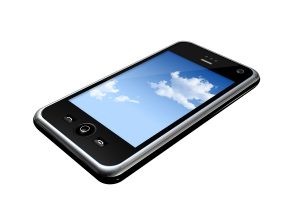From time to time GovEvents will come across information we feel our members and audience would benefit from. Here's something we wanted to share:

A phone that can think, see, feel and interact with the outside world may be closer than we think. Here we attempt to look into the mind-blowing possibilities this presents for event professionals.
A Look To The Future: At CES (Consumer Electronics Show, Las Vegas) this year, one of the most interesting things for us wasn't the technology being displayed in the myriad shiny stands but what is just a few years down the road. In particular, what we're talking about here is the "intelligent phone" concept described by Huawei's CEO, Richard Yu.
According to Yu, intelligent phones will incorporate a broad range of sensors which will allow the phone to interact with the outside world and a core AI (artificial intelligence) which will allow the phone to think for itself and react to changes in its environment. These sensors could include cameras, allowing the phone to see, microphones to listen and even taste or smell sensors. Basically, if it exists, the phone of the future will be able to sense it. Sure, this sounds like science fiction but if you take a look at the various AI products and connected devices out there already, it's not so far-fetched after all.
Intelligent Phones and Events: So what? I hear you say. Well, we think devices like this will not only give the consumer more to play with but also have very practical applications in the event industry. Of course, we don't know exactly what's going to happen but read on to find out some of the ways we think event managers and venues will be able to make good use of the technology to improve the attendee journey.
The Attendee Journey:
Signup
The phone knows what kind of events you like based on events you've been to in the past and how you've reacted to them. When a new event is announced, if the device thinks you'll like it, it'll simply inform you and ask you if you'd like to go. Simply answering "yes" could be enough to sign you up.
Getting There
Don't worry about all that travel business. Your phone has already booked a flight and an Uber at each end. It's all in your diary too, so you can't go wrong.
Arrival
As you approach the event, your phone automatically activates your entry pass, which is, of course contactless. Just like that, you're in. You walk up to a vending machine, tap it with your phone and your badge is printed.
Refreshment
Naturally, your phone knows when you want coffee. It can tell by your melatonin levels that you're sleepy. As you pass the food court, it wakes up and smells the coffee, then asks "would you like a coffee?". You answer "yes please", and walk to the coffee stand where a Barista addresses you by name and hands over your favourite brew. Your phone has picked up the bill already.
The Event Floor
As you wander around, you visit a few stands, look at a few things and speak to a few people. Your phone is looking, listening and most importantly learning about what you're most interested in based on what it sees and hears. It doesn't take long before it suggests visiting someone able to answer every question.
Keynotes
Like any decent event patron, you've already drawn up your keynote itinerary but what if you miss something important from one of the other speakers? No need to worry, your phone has already thought of that. Based on what it's learned throughout the day, your phone has suggested a few changes. You never need to miss an important announcement again.
The Bar
After all the keynotes have wrapped up, it's off to the bar. For some, this is the most important part of the event because it's where the important conversations happen. As you arrive, your phone suggests others with similar interests to seek out and connect with.
Post Event
As you're taking your automagically arranged ride home, your phone compiles a handy dossier of everything you've seen, heard and discussed for later dissemination. If you're so inclined, it may even suggest writing and publishing a blog post for you.
The next day, as you wake up, you find that your phone has also suggested a few meeting times to follow up on the conversations you forgot you had after that difficult third margarita.
Accessibility
Navigating a busy event can be a difficult experience for some. For those hard of hearing or with sight difficulties, it may even give the ability to experience what they wouldn't otherwise be able to, due to the device's ability to hear and see respectively.
In Conclusion: This is one of those situations where you can truly say that there are limitless possibilities for event professionals and attendees alike to exploit these technologies. Whether or not all of the above may be of use to you is a very personal thing but what is clear is that technologies like this can remove what some of your attendees may consider drudgery, allowing event professionals to create a much better experience for all involved.
View original post on Event Manager Blog



